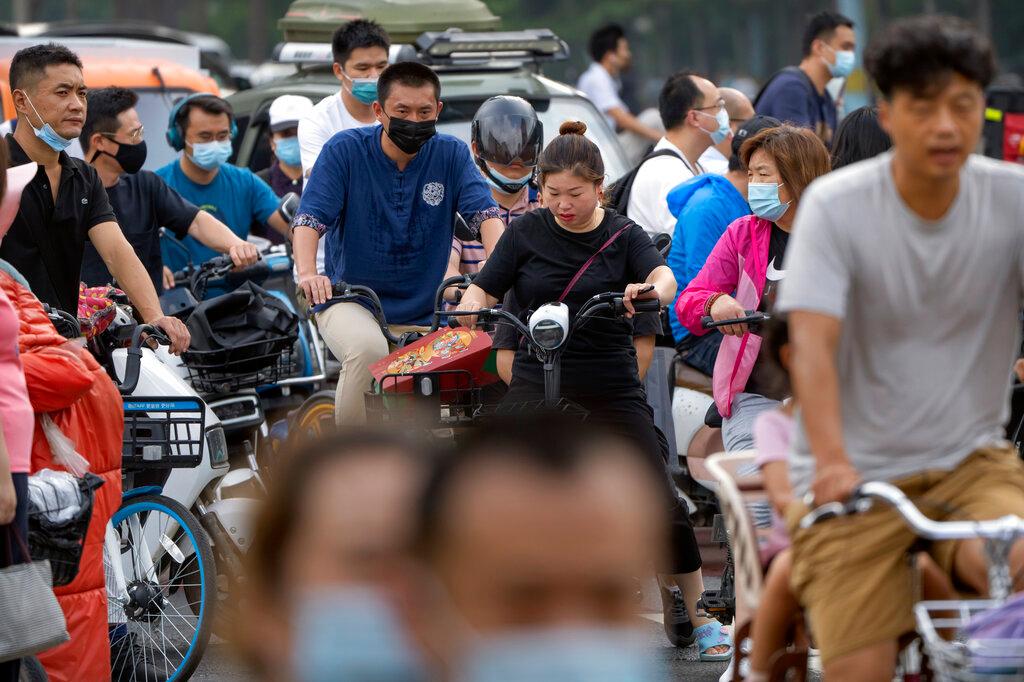Beijing punishes officials as Delta outbreaks hit more regions
Beijing is determined not to 'live with Covid-19' as many Western countries have decided to do, but stick with its Covid Zero policy.
Just In
Beijing has punished regional officials for failing to curb a Covid-19 outbreak that’s seen nearly 1,000 infections across the country in less than a month.
The government has long held local officials accountable for virus outbreaks, accusing them of failing to enforce precautions and restrictions.
More than 30 officials nationwide, ranging from mayors and local health directors to the heads of hospitals and airports, have been punished for negligence and mishandling local outbreaks, according to the state-backed Global Times.
The country is dealing with its broadest outbreak of Covid since it crushed the virus that first emerged in the central Chinese city of Wuhan in late 2019.
This resurgence is complicating Beijing’s strategy of keeping the virus out of the country entirely, Bloomberg reports.
The eastern city of Yangzhou issued warnings to five officials for mishandling mass testing that “allowed the virus to continue spreading”.
That city has now overtaken nearby Nanjing, where the delta-driven outbreak first started, as the biggest hotspot in China, with 308 confirmed cases reported as of Monday.
Six patients are in intensive care and if any of them die it would be China’s first Covid death in more than six months.
The latest resurgence has spread across more than half of the mainland’s 31 provinces.
Though the majority of China’s billion-and-a-half-plus population is vaccinated, authorities are not taking the chance of relying on inoculations and instead have fallen back on their standard tactic of mass testing and targeted lockdowns to halt the virus in its tracks.
Wuhan has also seen infections again after the virus was brought under control there in early 2020.
Fearing it could spread further and draw unwanted worldwide attention, local health authorities tested the city’s 11.3 million residents this weekend. They found nine locally transmitted infections.
The central province of Henan is facing a rise in infections as it continues to recover from flooding that killed more than 300 people in July.
Concerns are high that the area’s manufacturing sector, including Hon Hai Precision Industry’s massive iPhone production plant in Zhengzhou, and SAIC Motor Corp, China’s biggest automaker, could be at risk if the virus continues to spread and shutdowns or other stringent control measures are implemented.
Health officials expect to bring the outbreak under control within three weeks if containment measures are dutifully carried out – as seems likely after Beijing’s purge.
In a commentary published over the weekend, a former health minister scorned the idea of “learning to co-exist with the virus”, the approach being increasingly adopted by many western economies and some previously Covid Zero countries like Singapore, who will instead rely on vaccinations to limit the virus’s damage.
Business Standard reports that the spread of the delta variant is threatening China’s financial outlook, with Goldman Sachs and JPMorgan Chase downgrading growth forecasts for the third quarter and full year.
“As the outbreak unfolds, China’s domestic demand will weaken, and the overall inflation pressure will decline,” said Xing Zhaopeng, senior China strategist at Australia & New Zealand Banking Group.
Subscribe to our newsletter
To be updated with all the latest news and analyses daily.
